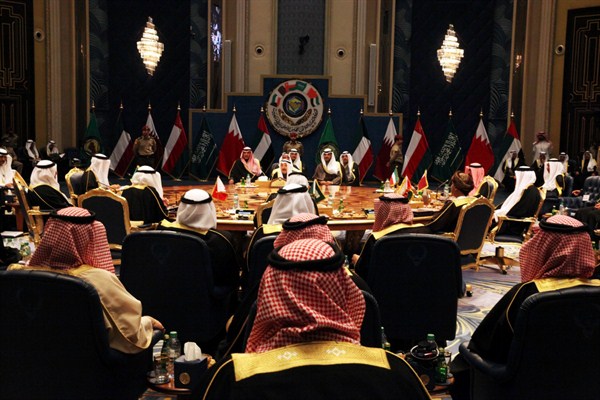The split within the Gulf Cooperation Council that pits regional powers Saudi Arabia and the United Arab Emirates against Qatar has proven surprisingly durable. Kuwaiti efforts to mediate the six-month-long dispute have failed, most recently and notably when Kuwait’s emir convened the annual GCC summit on Dec. 5 and was forced to end the proceedings early just after the closed-door opening remarks.
The intra-Gulf rupture has spilled over to the region’s external relations, making it harder for security partners to insist on maintaining even and equal relations with all GCC members. From informal think tank consultations to formal intergovernmental forums, Saudi Arabia and its neighbors have now imposed an approach that “you’re either with us or against us” on its outside interactions.
In Washington, the embassies of Saudi Arabia, the UAE and other countries aligned with them against Qatar, as well as experts affiliated with or supported by those countries, will avoid events with speakers or support from Qatar. Qatari perspectives are also not welcomed at forums that are funded by Saudi Arabia or the UAE. At the annual Manama Dialogue, organized by the International Institute for Strategic Studies and usually attended by Cabinet-level American officials, the Trump administration reportedly indicated that in the absence of any Qatari delegation, the U.S. would send more junior observers, not a senior ranked speaker. The dialogue’s Bahraini hosts are in the Saudi camp.

